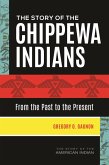Drawing on a wide range of sources, this book exposes Andrew Jackson's failure to honor and enforce federal laws and treaties protecting Indian rights, describing how the Indian policies of "Old Hickory" were those of a racist imperialist, in stark contrast to how his followers characterized him, believing him to be a champion of democracy. Early in his career as an Indian fighter, American Indians gave Andrew Jackson a name-Sharp Knife-that evoked their sense of his ruthlessness and cruelty. Contrary to popular belief-and to many textbook accounts-in 1830, Congress did not authorize the forcible seizure of Indian land and the deportation of the legal owners of that land. In actuality, U.S. President Andrew Jackson violated the terms of the Indian Removal Act of 1830, choosing to believe that he was not bound to protect Native Indian individuals' rights. Sharp Knife: Andrew Jackson and the American Indians draws heavily on Jackson's own writings to document his life and give readers sharp insight into the nature of racism in ante-bellum America. Noted historian Alfred Cave's latest book takes readers into the life of Andrew Jackson, paying particular attention to his interactions with Native American peoples as a militia general, treaty negotiator, and finally as president of the United States. Cave clearly depicts the many ways in which Jackson's various dishonorable actions and often illegal means undermined the political and economic rights that were supposed to be guaranteed under numerous treaties. Jackson's own economic interests as a land speculator and slave holder are carefully documented, exposing the hollowness of claims that "Old Hickory" was the champion of "the common man."
Hinweis: Dieser Artikel kann nur an eine deutsche Lieferadresse ausgeliefert werden.
Hinweis: Dieser Artikel kann nur an eine deutsche Lieferadresse ausgeliefert werden.








